An overview of the Knowledge Hub
Explore our Knowledge Hub to discover additional insights into the Wheatbelt region and the initiatives undertaken by the WDC.
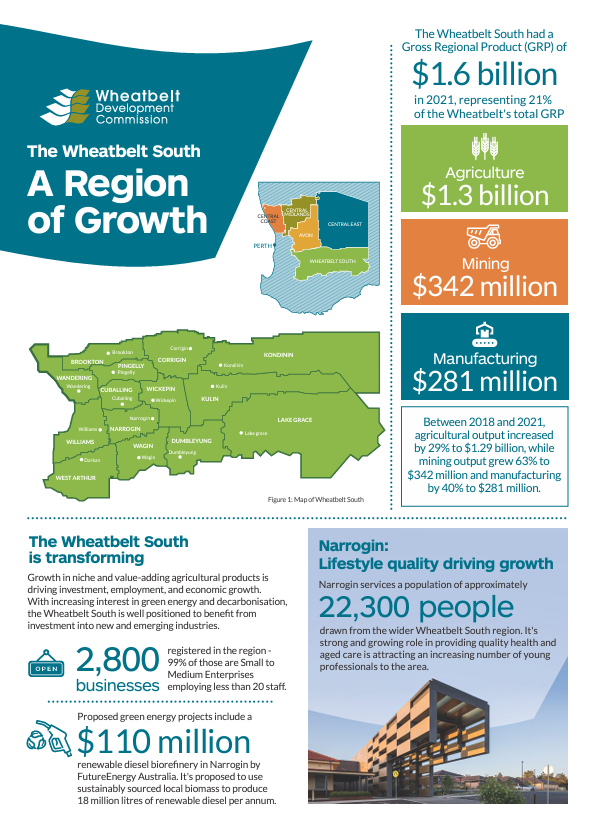
Growth in niche and value-adding agricultural products is driving investment, employment, and economic growth. With increasing interest in green energy and decarbonisation, the Wheatbelt South is well positioned to benefit from investment into new and emerging industries.
Owner: Wheatbelt Development Commission
Date: May 1, 2021
File Type: PDF
File Size: 330KB
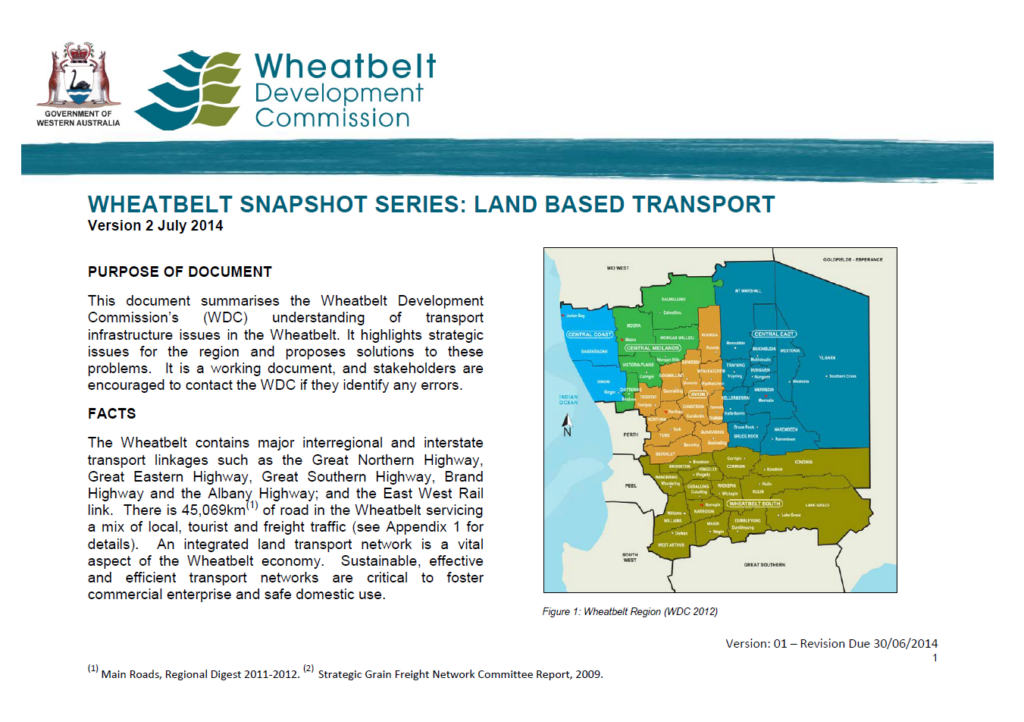
This document summarises the Wheatbelt Development Commission’s (WDC) understanding of transport infrastructure issues in the Wheatbelt. It highlights strategic issues for the region and proposes solutions to these problems.
Owner: Wheatbelt Development Commission
Date: July 2, 2014
File Type: PDF
File Size: 352KB
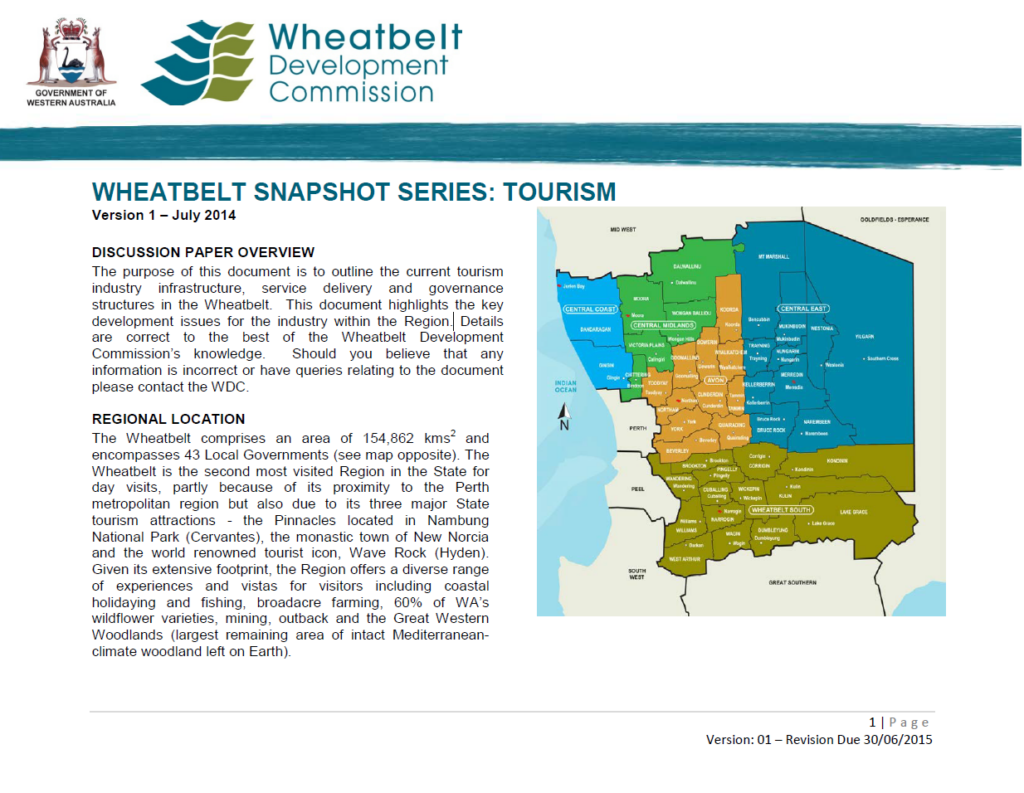
The purpose of this document is to outline the current tourism industry infrastructure, service delivery and governance structures in the Wheatbelt. This document highlights the key development issues for the industry within the Region.
Owner: Wheatbelt Development Commission
Date: July 1, 2014
File Type: PDF
File Size: 260KB
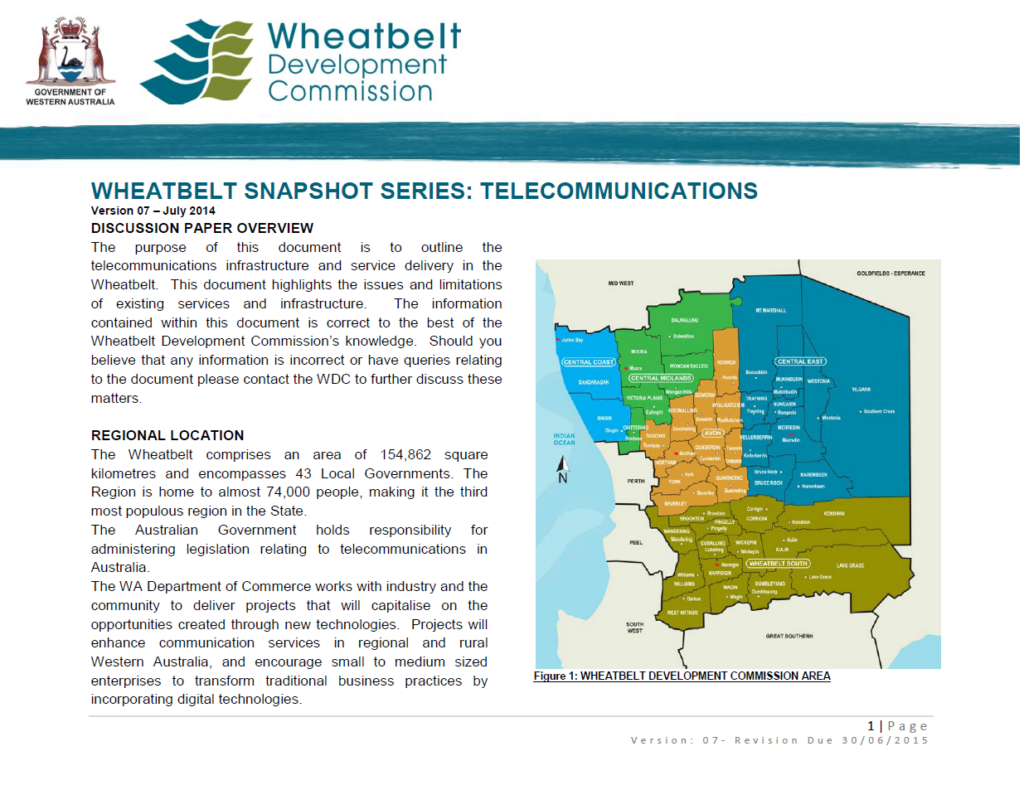
The purpose of this document is to outline the telecommunications infrastructure and service delivery in the Wheatbelt. This document highlights the issues and limitations of existing services and infrastructure.
Owner: Wheatbelt Development Commission
Date: July 1, 2014
File Type: PDF
File Size: 410KB
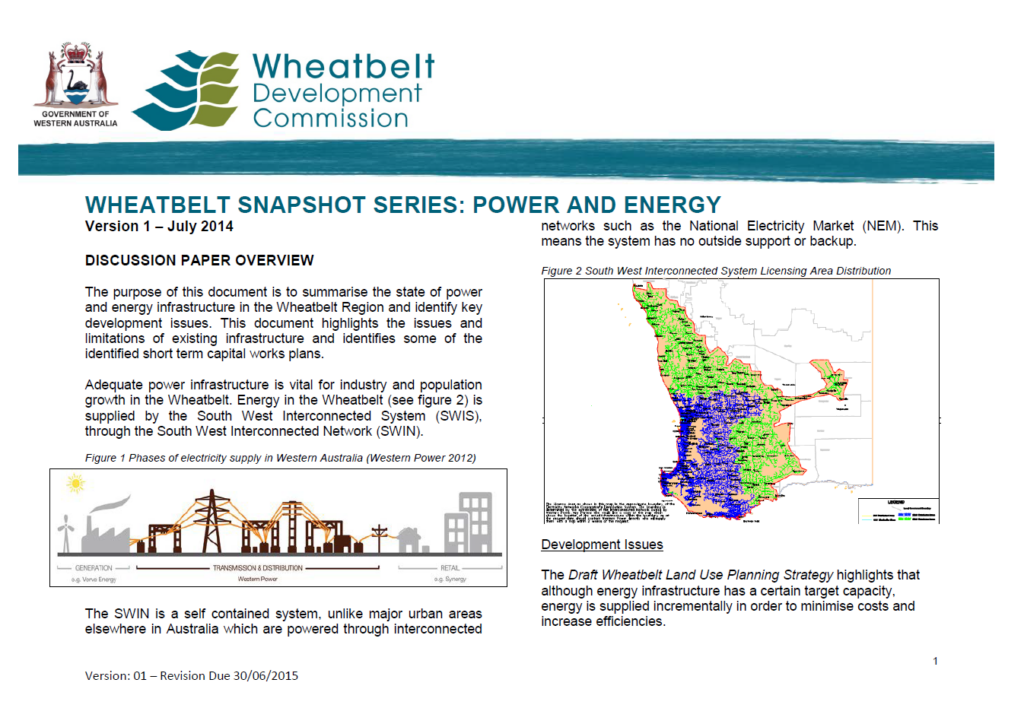
The purpose of this document is to summarise the state of power and energy infrastructure in the Wheatbelt Region and identify key development issues. This document highlights the issues and limitations of existing infrastructure and identifies some of the identified short term capital works plans.
Owner: Wheatbelt Development Commission
Date: July 1, 2014
File Type: PDF
File Size: 4MB
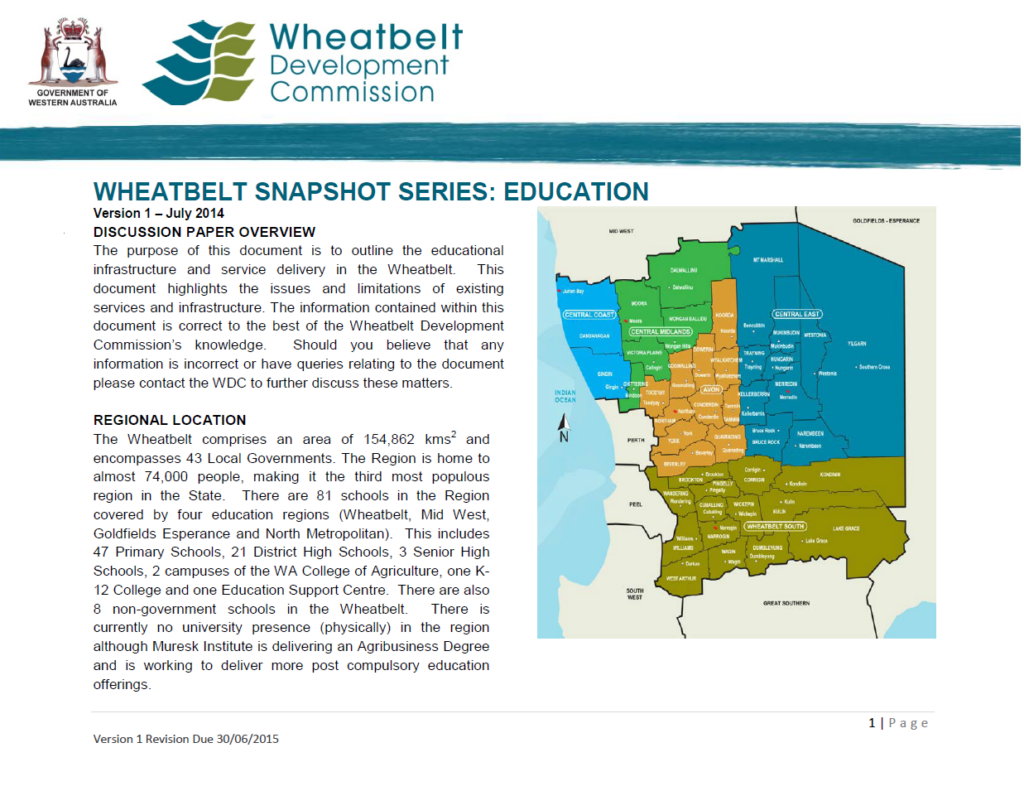
The purpose of this document is to outline the educational infrastructure and service delivery in the Wheatbelt. This document highlights the issues and limitations of existing services and infrastructure.
Owner: Wheatbelt Development Commission
Date: July 1, 2014
File Type: PDF
File Size: 420KB
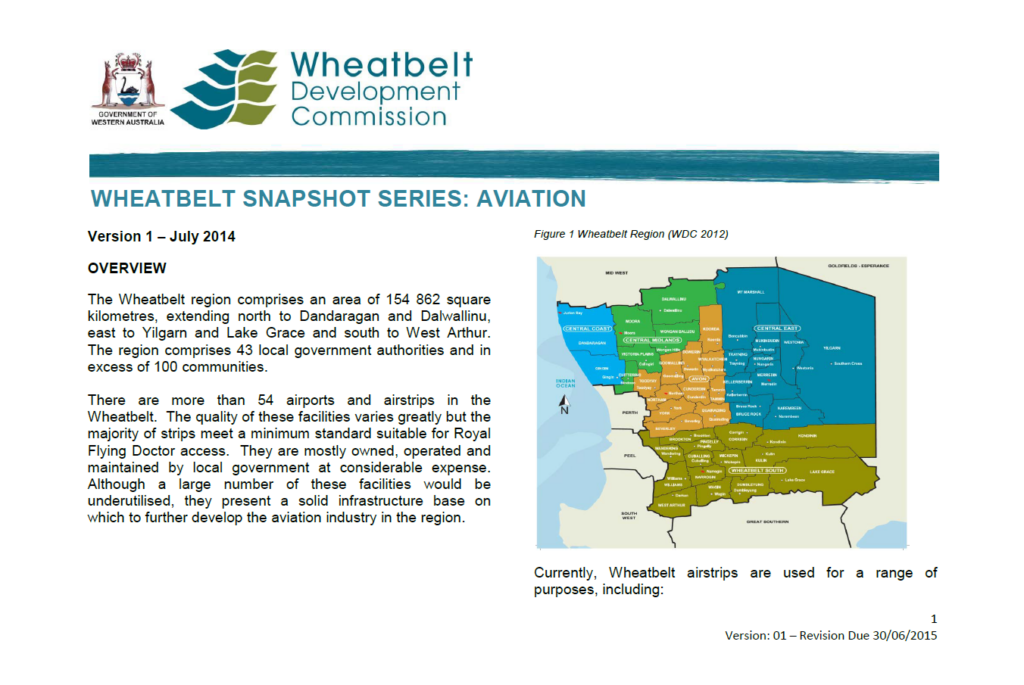
There are more than 54 airports and airstrips in the Wheatbelt. The quality of these facilities varies greatly but the majority of strips meet a minimum standard suitable for Royal Flying Doctor access. They are mostly owned, operated and maintained by local government at considerable expense. Although a large number of these facilities would be underutilised, they present a solid infrastructure base on which to further develop the aviation industry in the region.
Owner: Wheatbelt Development Commission
Date: June 30, 2015
File Type: PDF
File Size: 240KB
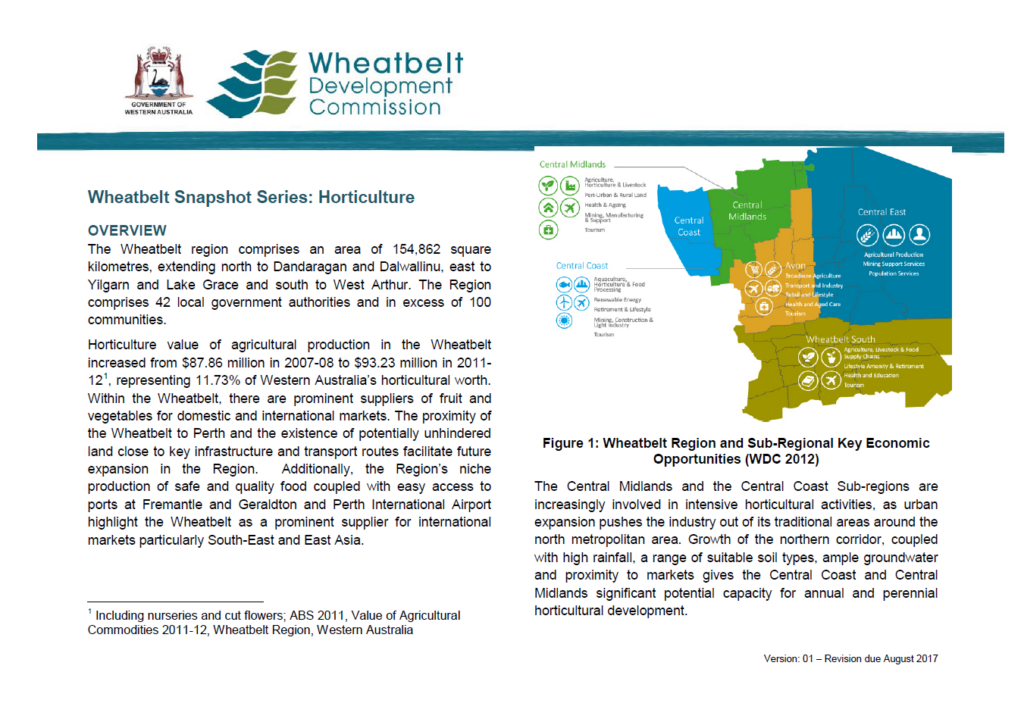
Horticulture value of agricultural production in the Wheatbelt increased from $87.86 million in 2007-08 to $93.23 million in 2011-121, representing 11.73% of Western Australia’s horticultural worth.
Owner: Wheatbelt Development Commission
Date: August 1, 2017
File Type: PDF
File Size: 320KB
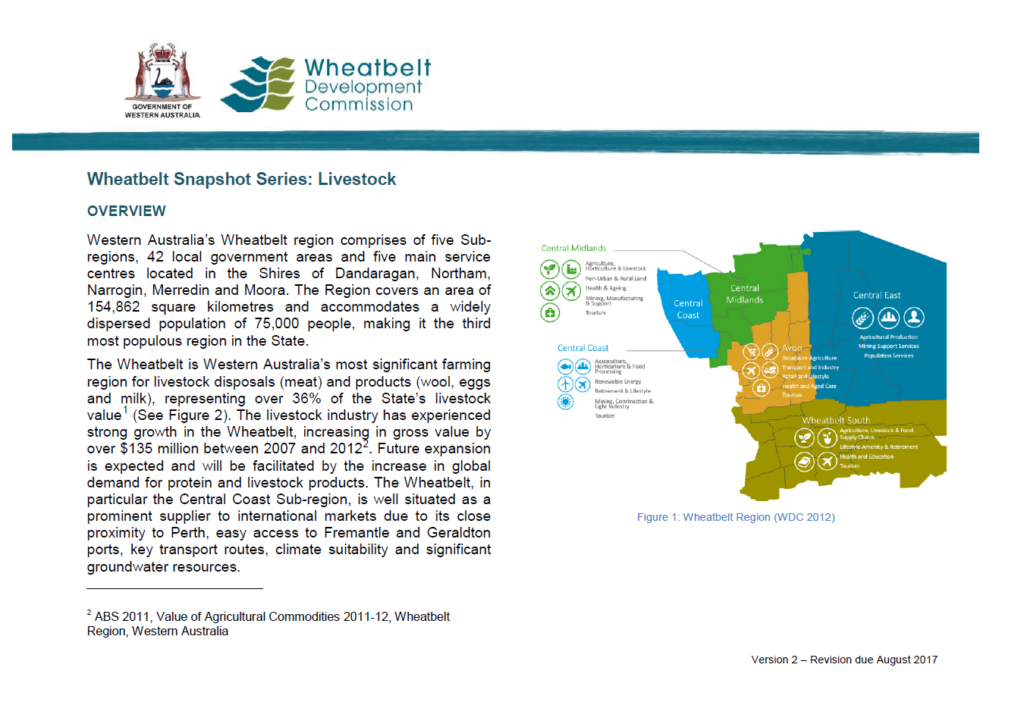
The livestock industry has experienced strong growth in the Wheatbelt, increasing in gross value by over $135 million between 2007 and 20122. Future expansion is expected and will be facilitated by the increase in global demand for protein and livestock products.
Owner: Wheatbelt Development Commission
Date: August 1, 2017
File Type: PDF
File Size: 480KB
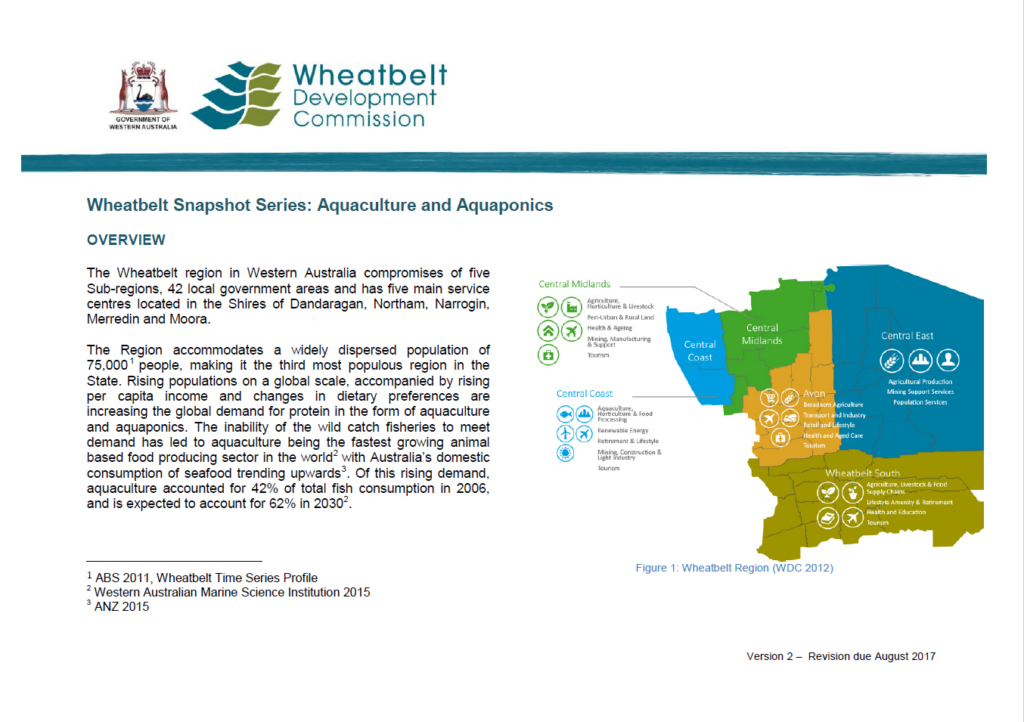
Aquaculture offers important economic diversification to the Wheatbelt – the industry fosters innovation and requires technical support from various work disciplines including engineers, marine experts, environmental scientists, and fish health specialists.
Owner: Wheatbelt Development Commission
Date: August 1, 2017
File Type: PDF
File Size: 350KB
The Wheatbelt Development Commission respectfully acknowledges the Traditional Owners of the lands that we live and work on: the family and clan groups of the Ballardong, Goreng, Gubrun, Kalamaia, Njaki-Njaki, Whadjuk, Wiilman, Wudjari, Yued and Yamatji People of the Noongar Nation, their Elders past present and emerging.
We acknowledge their living culture and important role in the sustainable economic development and prosperity of the Wheatbelt region. Led by Noongar wisdom and philosophy, we are committed to embracing opportunities for Aboriginal economic development, entrepreneurship and wealth creation; being a voice of change and reconciliation; supporting sustainable and healthy communities; and empowering future leaders.
This site uses cookies to offer you a better browsing experience.